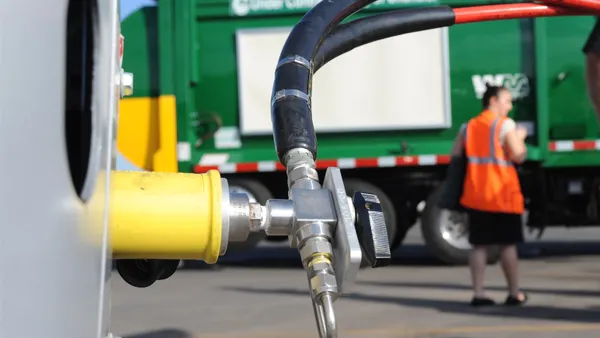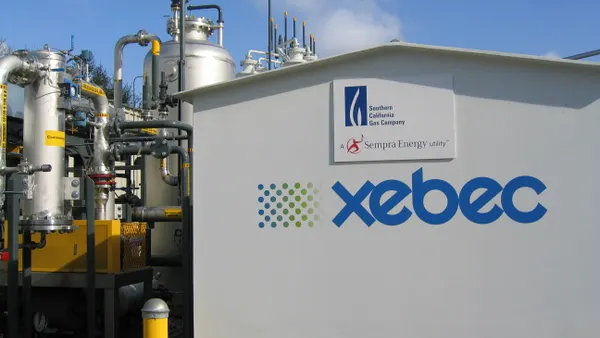Dive Brief:
- New York Gov. Andrew Cuomo, D, issued a statement Tuesday that opposes Circular enerG's plans for a proposed waste-to-energy facility in the town of Romulus, NY.
- Cuomo said the incinerator project "is not consistent with my administration's goals for protecting our public health, our environment, and our thriving agriculture-based economy in the Finger Lakes," and went on to say his administration will "consider all options" to avoid this plan. "I'm confident that the Article 10 siting board will carefully consider these impacts and reject the project application if one is ever filed."
- If approved, the incinerator would burn up to 2,640 tons of waste per day and draw 445,000 gallons of water from Seneca Lake daily, according to NYup.com. This week, opponents of the plan went to Albany to protest the project, demanding the town of Romulus get the final say in the decision.
Dive Insight:
The company first made its pitch to the upstate town of Romulus in December 2017, but has faced a series of roadblocks since. The $365 million proposed facility would generate up to 50 MW of energy, but residents have shown a strong opposition to the trucks and rail transport that the 2,640 ton capacity of the facility would require.
The proposal has received a wealth of backlash since it was introduced, including opposition from the Romulus Town Board, the Geneva City Council, the Ontario County Board of Supervisors, the Seneca County Board of Supervisors and the New York Department of Public Service, which said Circular enerG is not doing enough to reach out to potential stakeholders in the region.
And while this opposition from Cuomo doesn't come as much of a shock considering other recent opposition from state departments, Circular energG may be left in a chokehold considering the company will need approval from a state review board for the incinerator.
While it's been a few years since the last new WTE project in the U.S. was built in West Palm Beach, FL, the subject remains hotly debated. Some argue that WTE is better than sending material to a landfill, and may be the only way for regions to hit their "zero waste" goals. Other say WTE is a "false path" to those goals, and more time should be spent on boosting recycling and reducing waste generation.









